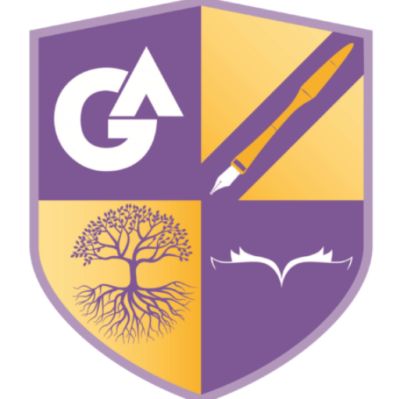Advanced Learners Programme

ALP Intent:
The Advanced Learners Programme believes in encouraging and supporting all students to develop their skills, talents and aptitudes to the full, thus preparing them for outstanding academic achievement and lifelong learning.
Staff recognise and adapt their teaching to the ablest pupils in the cohort and ensure that these pupils are stretched and challenged across subject departments, fostering a culture of high expectations and prestige.
As a result, pupils become independent and resilient learners, and therefore highly successful members of society with ambition and aspirations.
ALP Lead:
| Brad Pettitt – Higher Ability Co-Ordinator |
| Email: bradpettitt@graceacademy.org.uk |
How It Works:
Students are selected to become part of the Advanced Learners Programme based on their previous academic performance in assessments, and from input from teachers about their aptitude. Particular qualities of an ALP student include:
| Working above expected progress | Achieving well and showing potential in a wide range of contexts |
| Working flexibly and applying knowledge, experience and insight | Evaluating their work by reflecting and refining what they have done |
Opportunities:
Stretch and challenge occurs every day within lessons and all students are provided with additional support to ensure that they are achieving, making good progress and are given a extensive range of opportunities.
We provide a wide range of high-level extra-curricular enrichment opportunities e.g. through the whole school enrichment programmes and through subject-specific clubs and visits. Other opportunities include:
- School trips and visits such as University experiences within (Aimhigher, Warwick Sutton Scholars, liaising with Girton College at Cambridge University)
- Subject clubs/workshops
- Taster sessions for particular subjects/STEM days etc
- Visiting speakers and masterclasses
- Peer teaching/mentoring
- Academic Mentoring Reports: Identifying and keeping track of each student’s progress and attainment within each academic cycle across all subjects, ensuring there is support and reflective conversations provided for each student.
- Student specific interventions: For the targeted lowest performing intervention students, dependent on one-to-one conversations and so tailored to their needs. Can include academic or pastoral mentoring, working with their Head and Assistant of Year and extended work set.
- Revision and enrichment provision for examination courses. For example- Ebacc specific enrichment session in KS4: Students are required to attend Wednesday afternoons Period 5 in enrichment sessions that focuses on extra time for language learning.
What can parents do to support?
As parents/carers, you are a partner and support role in your child’s learning. Here are some examples of what you could be doing at home to help guide your child:
- Read with them, even if they are good readers.
- Provide good books, magazines, papers, journals and any reading that stimulates interest in the specific interests of your child, but also in obscure areas of knowledge.
- Ask their advice about solving problems, not to add a load to their lives but to seek their advice.
- Discuss their homework and what they learned at school that day, showing interest and encouragement.
- Encourage a regular routine, and good study habits.
- Discuss and use the school’s word of the week at home with them.
- Extend their general knowledge with learning a new fact each week.
- Encourage them to try new activities so that they are not always focusing on obvious skills.
- Encourage them to ask questions.
- Encourage them to appreciate and listen to the views of others.
Resources:
| KS3 ALP Recommended Reading List: | KS4 ALP Recommended Reading List: |
| The Brilliant Club | BBC Bitesize |
| Oak National Academy | National Theatre |
| Aim Higher | Speakers Trust |

